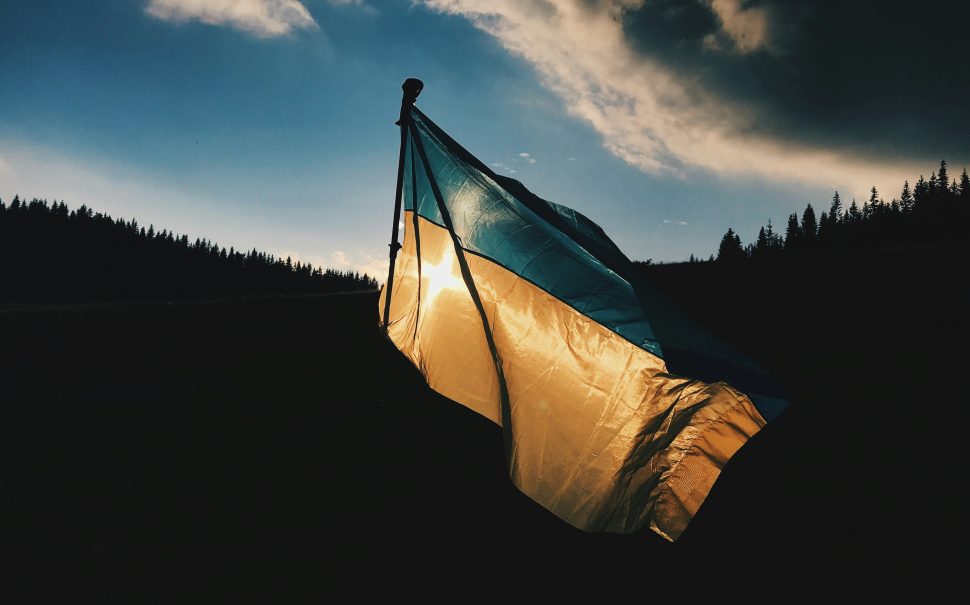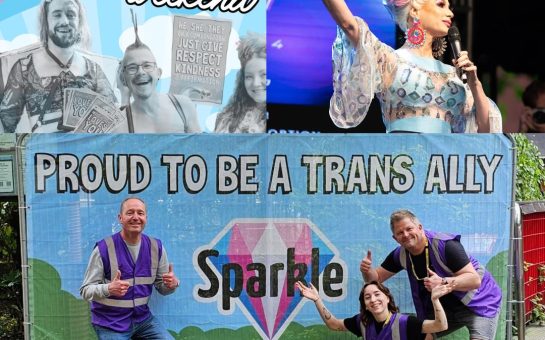The secret to their survival was their perseverance.
Hiding in underground bunkers and shielding from rockets was their way to stay out of sight from the world, surrounded by dust and rubble.
Whilst other people were chilling out in their rooms, hanging out with their friends in parks and cafes, relaxing in the comfort of their own homes under clear skies, Ukrainians like Katya Kovalenko were rushing to get underground before sunset and eating cold meals that had been rotting in the bunkers.
It had been this way ever since Russia invaded Ukraine in February 2022.
Her evenings consisted of eating plain, cold buckwheat in a plastic bowl. It was the cheapest grain her family could find that was stored in mass amounts for everyone else to eat. If lucky, they’d get to have small pieces of beef which would soothe their struggling while the walls of the bunkers crumbled every so often due to the constant shelling.
Katya’s life inside a Ukrainian bunker was dark, grim and cold.
The short breaths. The muddled thinking. The vision blurring.
Surviving each day was a struggle when rocket shelling and air raid sirens were as common as going out for a coffee.
Katya, 18, said: “My experience has aged me more than I am, and I believe that I am full of years.
“This war has changed me and I will never get my last years of being a teenager back – nor will I get to relive any of my peak years.”
Russia has shelled Kharkiv heavily ever since the start of the full blown conflict two years ago.
It’s one of the worst affected areas in Ukraine
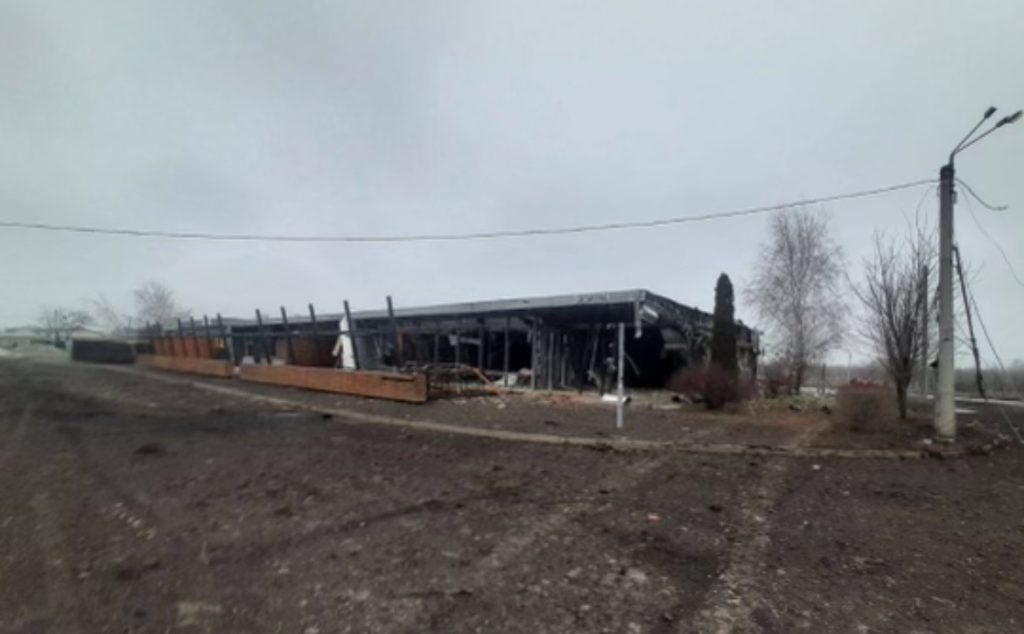
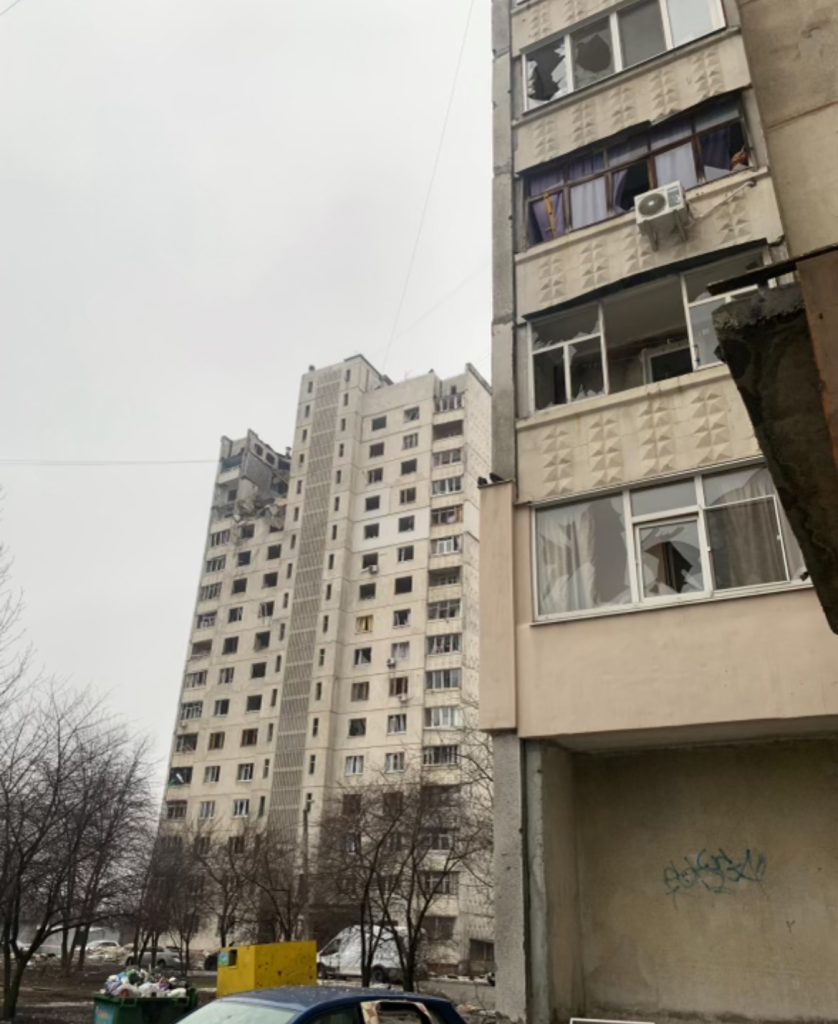
Cities in the East, such as Kharkiv, Donetsk, Dnipro and Mariupol were one of the first to be threatened into an autonomous state with ties to Russia.
Despite the Russo-Ukrainian war commencing in 2014, Russia’s invasion escalated February of 2022 which historically became the largest attack on a European country since World War Two.
Many fled to various countries, but England was one of the most popular destinations for the immigrants.
Katya said: “On the morning of 24 February 2022, a majority of the country was woken up by the sound of bombing super early.”
She fled to England after suffering months of intense bombings in her hometown and luckily her aunt was able to take both her and her mother in.
Her story is quite different compared to the other refugees, as she already had ties to the country as distant relatives and siblings had already settled in the United Kingdom.
She added: “It was horrendous because I thought it was going to be a regular day and I had planned to go out and meet my friends.
“And then out of nowhere my world broke in half.
“I am so lucky though that I was able to escape the country and find another place to stay – the journey was difficult but worth it to get to safety. It still doesn’t feel real.
”I’m currently in Manchester now and the council have found a flat for my mother and myself to rent at a discounted price – it is bigger than we could have ever received in Ukraine but I’d trade it all to live back at home and be surrounded by my family and friends.”
Katya’s family soon realised that their location and safety were in danger once hearing about the political threats that were swimming around months before the official attack in February but eventually left a few months after the bombing started because they were scared to evacuate at the beginning and leave everything they knew behind.
In hindsight, she says this was the best decision for herself and her mother – who she escaped the country with – as neighbouring areas like Luhansk officially claimed independence from Ukraine a few months later, which created an easier route for Putin to attack the rest of Ukraine from the Russian border.
As people left the country, the nation was divided into two as only women and children were able to leave the country.
Men were forced to stay in case they were called up to join the army and fight on the battlefield, causing millions of families to be broken up and set apart throughout Europe.
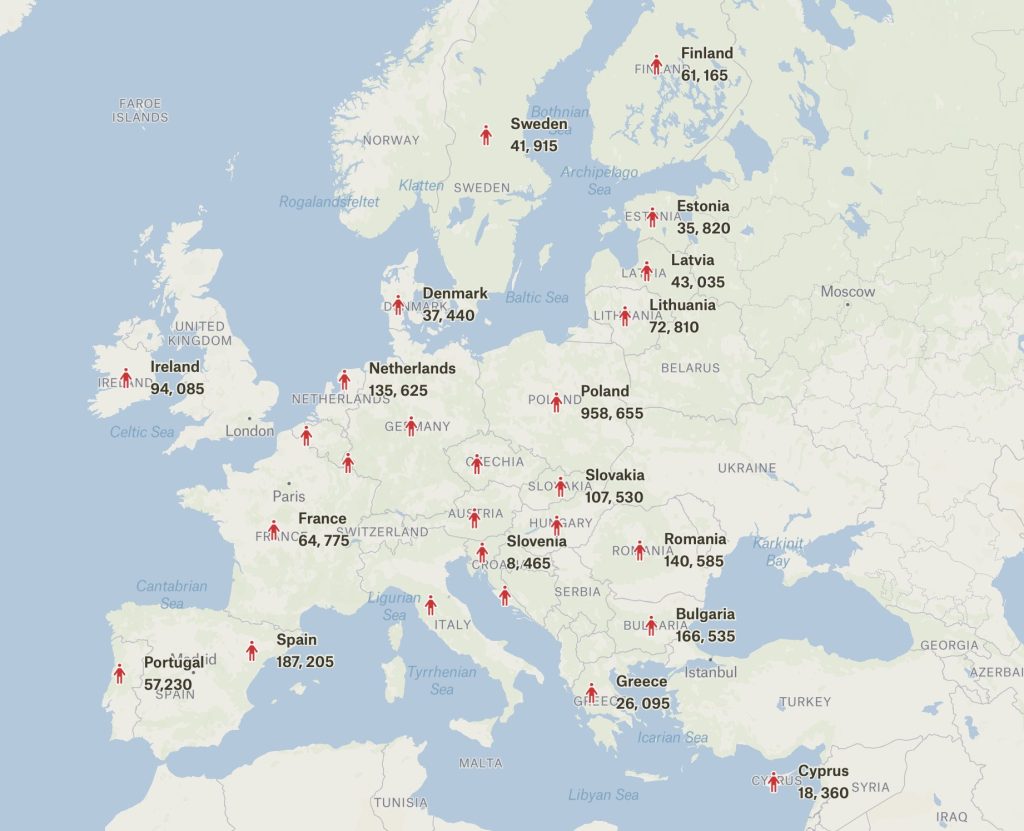
Another refugee, Anya Melnyk, 22, who was separated from her father in Poltava, when she left Ukraine. She ended up leaving to go to Berlin where she was sheltered with her sister and mother at a school.
Anya said: “I’m thankful that I have been able to settle in Germany but travelling through Europe was such a scary experience.
“Our journey was dangerous because we had to travel through the border where everyone else was leaving the country in cars and we were stuck in horrendous traffic. There were so many psychosocial issues because I’m pretty sure a lot of us were depressed, anxious and out of touch with ourselves.
“We were scurrying out of the country and the traffic did not help because air raid sirens were constantly going off and the police were stopping so many cars to stop the carnage on the roads. It was terrible because we did not know where to go and we could all hear the bombs and rockets being set off.
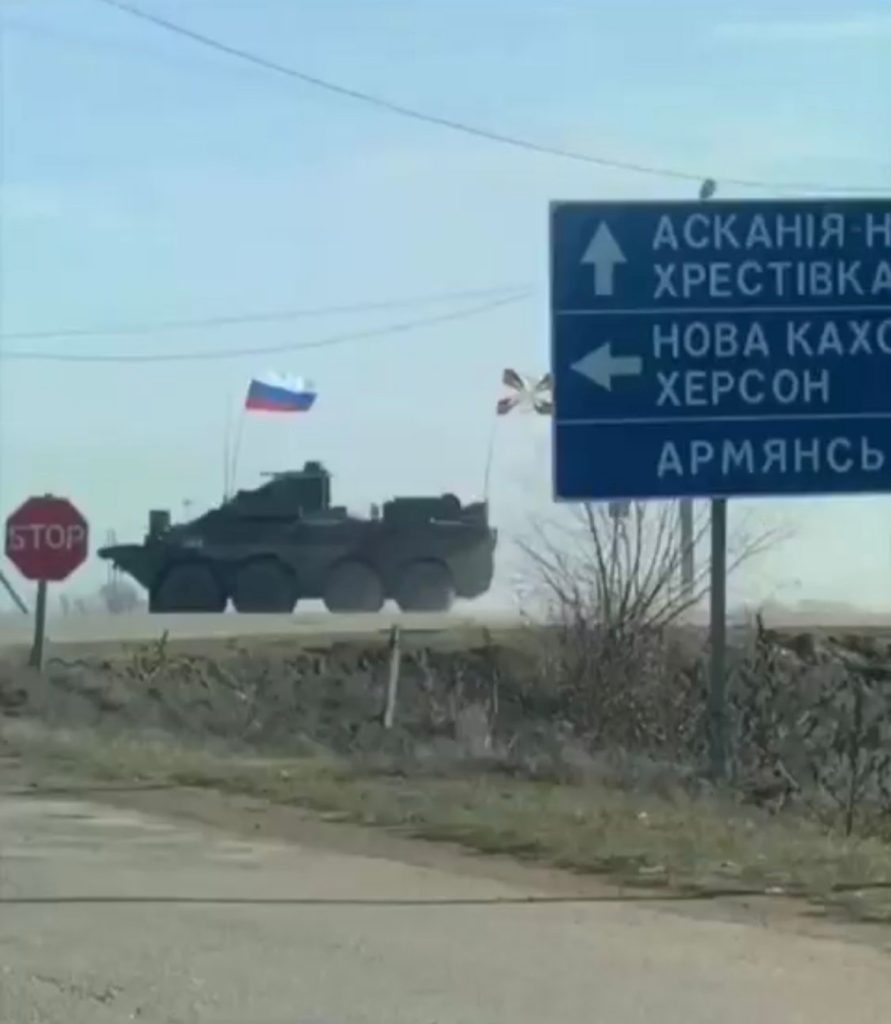
Anya’s sister, Lina, 12 – struggled the most because she had to leave school and suffered constant stress due to her age, and she was later diagnosed with PTSD and anxiety.
Both Katya and Anya had similar experiences before evacuating, especially as both women originated from the East of Ukraine. Kharkiv and Poltava both went through extreme atrocities, as there were many casualties and buildings were constantly destroyed.
Both women had lived underground in converted bunkers-turned-basements that were built to withstand attacks. These places became lifelines for many Ukrainians as residents throughout the country seeked refuge from Russian fire.
The Soviet-era bomb shelters that were built many years ago were filled with electricity as power lines were connected from linesmen who had the skills to transform the unit.
Katya said the constant shelling sent vibrations through the bunkers which made it very unsafe for the many people who were huddled underground. Families created a home with carpets and colourful blankets, to make their suffering just a little bit easier.
Anya said nobody thought that the bunkers would be useful because they were old and weren’t used in a long time.
She said: “It was a horrendous experience because I was constantly in fear.
“My bunker had 20 other people with me and we were eating stale food half of the time. This was dangerous for us all, because we were barely surviving and this barely gave me any hope.
“I saw other children around me running back from school before the government officially cancelled the rest of the terms. Kids were doing their homework with poor lighting and parents were bandaging wounds with flashlights from their Iphones. It was dystopian.”
Both Anya and Katya currently study online at their respective universities while working part-time jobs. Since the start of the official invasion, the pair have been able to adapt to their countries, have made friends, and have luckily been able to learn English and German.
Lots of stories were filled with despair when speaking to the Ukrainian refugees but Alena Ivanovna’s story was more complex.
Alena, 25, is a Ukrainian-born woman with Russian parents who emigrated from Russia to live across the border before her parents decided to move back.
A few months after the war started, she left Kyiv, but decided to return as there weren’t many bombings compared to the rest of the country.
Alena said: “I didn’t know what to do at the start and decided to stay in Kyiv when most of the country started leaving. I have made so many memories here and I have so much history, and I think my love of the country influenced my decision a lot.
“I had nowhere to go to be honest, which was also another reason why I didn’t leave at the start and I would have rather stayed in my home in fear than be lost as a refugee in a country where I wouldn’t be able to communicate with anyone.
“I eventually left to visit my friend in Poland who had left Ukraine a year before the war started so I stayed with her for a few weeks but I got homesick and came back. It was seen as a silly decision to a lot of people but I had a job to get back to as a creative director at a theatre, and I wanted to support Ukraine anyway I could.”
Alena was advised not to travel back yet arrived back in Kyiv via coach as many airports had closed – causing many arguments with friends and family.
“My family are currently in St.Petersburg, Russia and moved back there after having me in Ukraine. I moved back for a bit too before I got a job back in the Ukrainian city and decided to continue living here in Kyiv.
“It’s a bit surreal because they’re living in a country where they are causing Ukrainians to suffer but I understand that it’s their homeland and they also have no place to go.”
Alena’s experience isn’t as common as the other refugee stories, especially because she believed that it was in her best interest to return to Kyiv.
When asked about the current bombings that happen to this day and how she deals with it, she said: “It’s still difficult to get used to but I am now more prepared.
“The theatre that I work at is based in the centre so I understand that we don’t go through as much trouble compared to the other people in other areas of the country but I have a place to hide and my co-workers all have a rigid routine to follow.
“Shows still go on, people still go to work, parties still happen and we all just continue to survive as much as possible.
“That’s our life now.”
Unfortunately, the war in Ukraine is not unique. Similar countries around the world such as Palestine, Turkey, Armenia and Myanmar are currently going through war and some places are even experiencing ethnic cleansing. But what separates Ukraine from the rest is their advantage to receive global aid and political involvement from international cabinets to help the residents to escape and survive the conflict.
Anya said: “One day the nightmares will stop and Ukraine will finally be independent from all of this mess.
“I hope that one day I can finally go home and visit my village, sit by the lake with some bread, and not worry about if my ancestry and history was wiped out.”
Featured image: Photo by Max Kukurudziak on Unsplash
